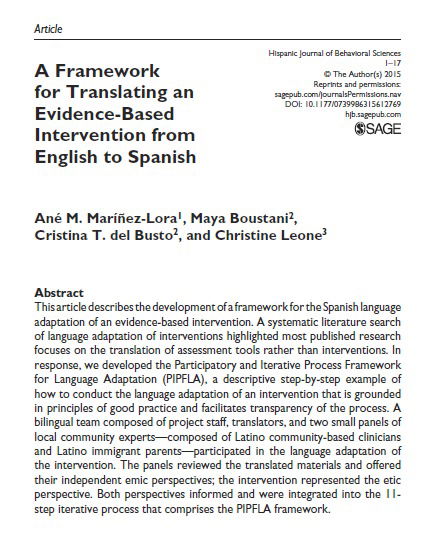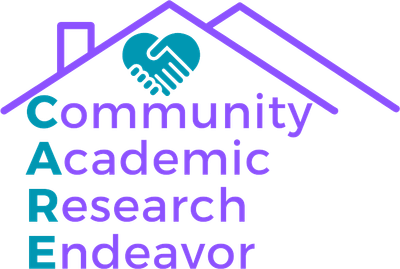A Framework for Translating an Evidence-Based Intervention from English to Spanish

This article describes the development of a framework for the Spanish language adaptation of an evidence-based intervention. A systematic literature search of language adaptation of interventions highlighted most published research focuses on the translation of assessment tools rather than interventions. In response, we developed the Participatory and Iterative Process Framework for Language Adaptation (PIPFLA), a descriptive step-by-step example of how to conduct the language adaptation of an intervention that is grounded in principles of good practice and facilitates transparency of the process. A bilingual team composed of project staff, translators, and two small panels of local community experts—composed of Latino community-based clinicians and Latino immigrant parents—participated in the language adaptation of the intervention. The panels reviewed the translated materials and offered their independent emic perspectives; the intervention represented the etic perspective. Both perspectives informed and were integrated into the 11- step iterative process that comprises the PIPFLA framework.
Full text available here: Maríñez-Lora et al (2015)



